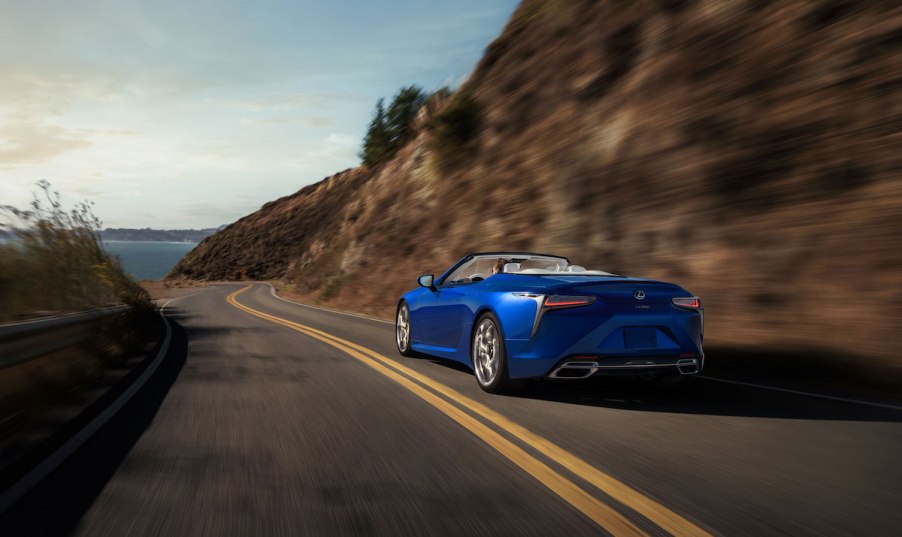
Are Convertibles Really More Dangerous Than Other Cars?
Since they don’t have a fixed roof, it’s easy to assume that convertibles must be less safe than other cars. Is a convertible more dangerous? A new IIHS study shows that’s not the case. Here’s a look at what the study, written by Eric Teoh, IIHS director of statistical services, found about convertible safety.
Sources of the data
The study looked at convertible and non-convertible versions of cars that were one to five years old between 2014 and 2018 and driver deaths and police-reported crashes. The National Highway Traffic Safety Administration’s (NHTSA) Fatality Analysis Reporting System provided the data on drivers who died in crashes.
The NHTSA’s National Automotive Sampling System: General Estimates System provided data on police-reported crashes through 2016. The system was replaced by the NHTSA’s Crash Report Sampling System in 2016.
Lower crash rates and fatality rates for convertibles
The IIHS study discovered that, according to an analysis of crash and fatality rates, late-model convertibles are no more dangerous than vehicles that are not convertibles. When comparing convertibles with non-convertible versions of the same cars, there were lower crash rates per miles traveled.
Convertibles had 6% fewer police-reported crashes per miles traveled than their non-convertible versions. There were lower driver death rates, too, although the difference was not statistically significant. The death rate for drivers was 11% lower in a convertible, but the rate of driver ejection was higher at 21% compared to 17% in a non-convertible.
During a rollover crash, drivers were also more likely to be ejected from a convertible. There was a 43% likelihood of being ejected from a convertible during a rollover crash as compared to 35% for a non-convertible.
Circumstances and driver behaviors
The study also examined circumstances and driver behaviors paired with fatal crashes. These factors include how the car was hit, driver impairment, and seatbelt use.
The types of crashes that resulted in fatalities were similar between convertibles and non-convertibles. About 25% happened in rollover crashes, about 50% in one-car crashes, about 60% in front-impact crashes, and about 20% in side-impact crashes.
The study also found that convertibles drivers were a bit more likely to be wearing their seatbelts and less likely to be speeding. They were slightly more likely to be under the influence of alcohol, though.
Factors that might make a difference
The study did not account for all possible differences in the use of convertibles that might influence crashes and fatalities. Forbes suggested a few factors that could explain the differences. Since convertibles are more expensive, drivers are often older and possibly more careful.
Convertibles are also heavier than their non-convertible versions, which could improve their outcomes in a crash. With the top down, drivers would be more aware of their surroundings and less likely to drive in poor weather conditions.
Examining the roof
In non-convertible cars, having a stronger roof can reduce severe injury or death and reduce ejection risk during a rollover crash. The NHTSA has roof crush resistance rules, but convertibles are exempt from them. Some convertibles do have reinforced A-pillars or roll bars, though. IIHS started testing roof strength in 2009 and made a strong roof necessary to be a Top Safety Pick in 2010.
Are convertibles safe?
Even though they don’t have a strong roof, the study’s author has stated that convertibles aren’t more dangerous than non-convertible cars. “Based on this study, convertibles don’t appear to pose a particular safety risk,” said Teoh. “If you’re shopping for a convertible, you should consider crash test ratings and safety features, just as you would if you were shopping for any other car.”


